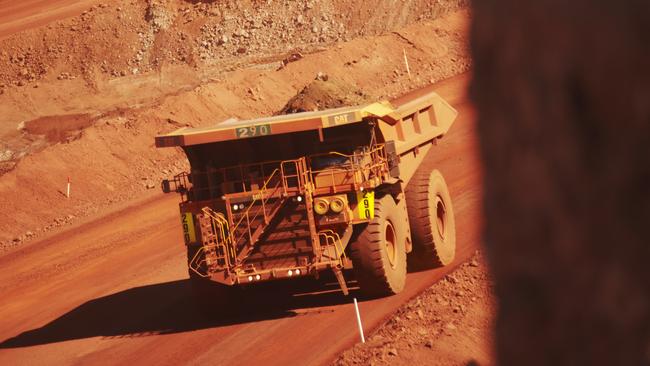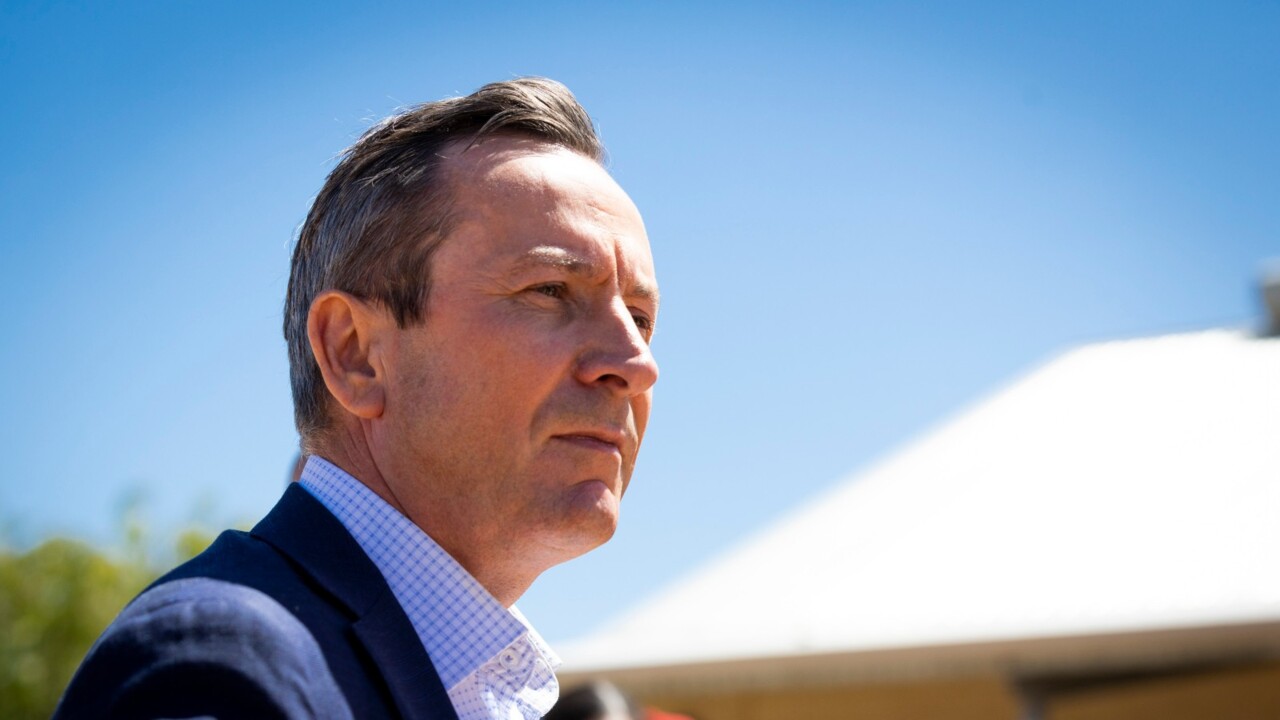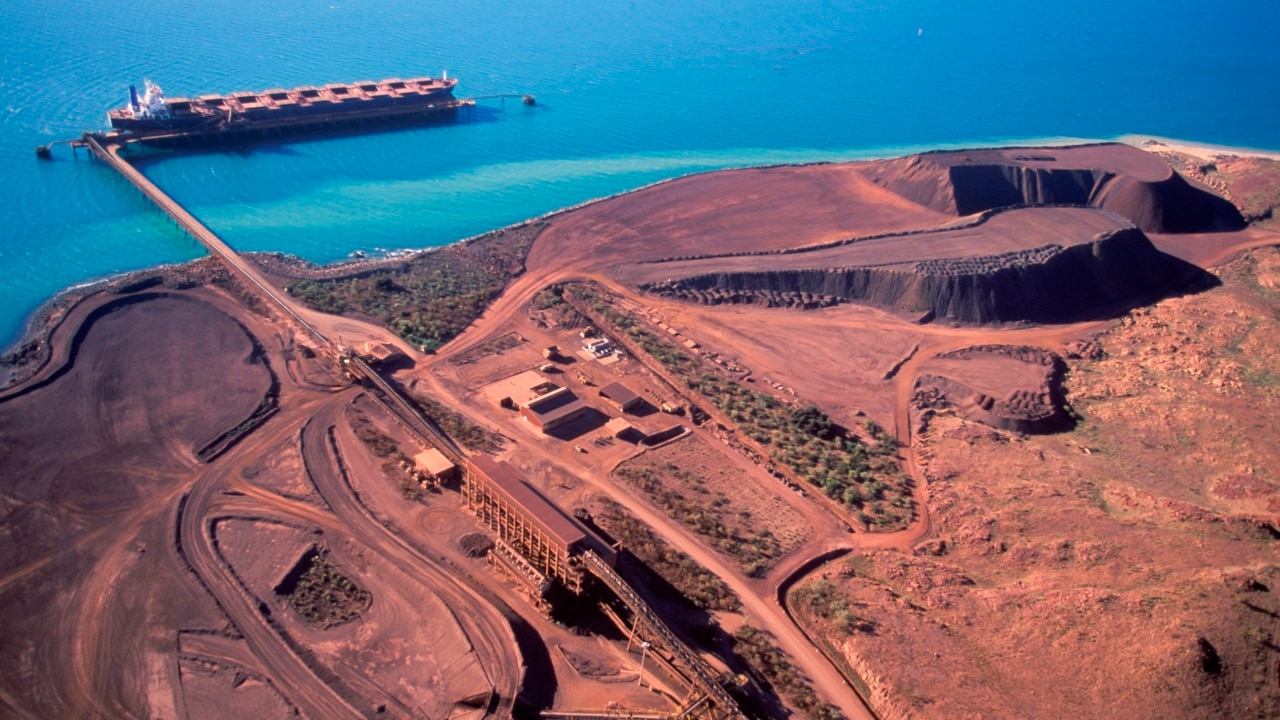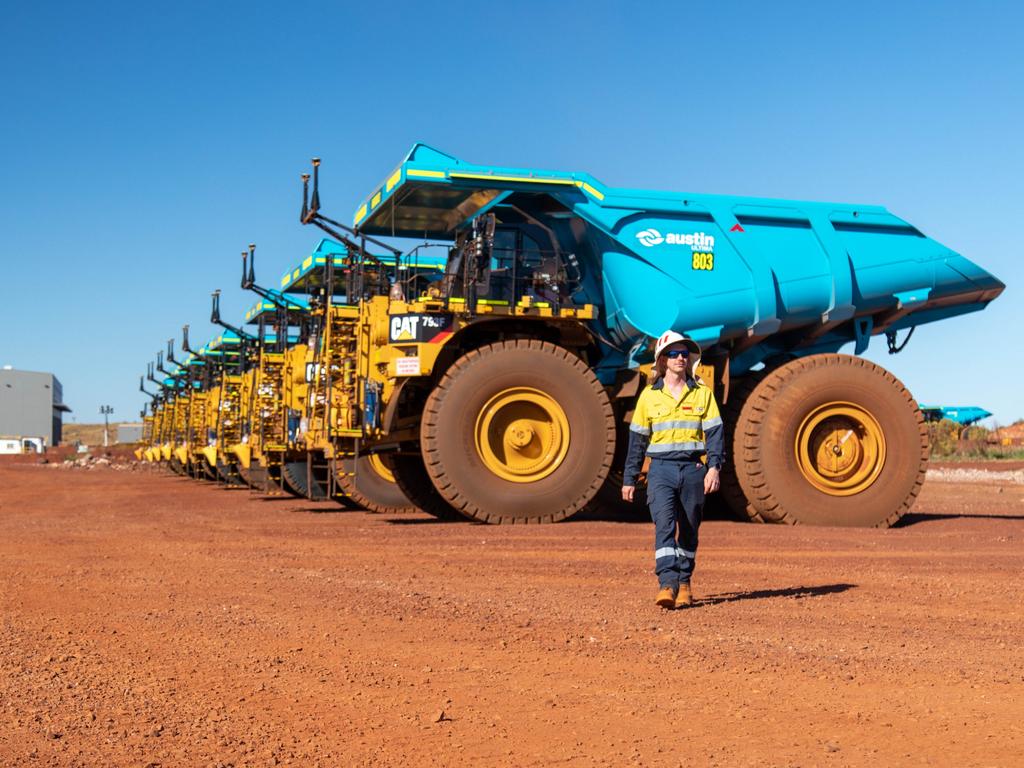Steeled for iron ore fall budgetary blow
The halving of the iron ore price in recent weeks is ‘huge budgetary news’ for the commonwealth and Western Australia, economists say

The halving of the iron ore price in recent weeks is “huge budgetary news” for the commonwealth and Western Australia, economists say, with the collapse potentially undermining the Morrison government’s capacity to deliver “high government spending and ongoing deficits”.
The key steelmaking commodity has halved over the past few weeks from about $US220 a tonne to $US110 most recently. The precipitous drop was triggered when China in July mandated steel production limits on environmental grounds.

More recently, the price decline has been turbocharged by global concerns that massive Chinese property developer Evergrande could collapse, delivering a blow to the country’s massive residential construction industry and stalling a major source of demand for steel, and therefore iron ore.
Deloitte Economics partner Chris Richardson said “iron ore’s crash is huge budgetary news” for the federal and WA governments.
“Both have budgeted conservatively but they may not have turned out to have been conservative enough,” Mr Richardson, who will release his updated budget estimates in October, said.
Mr Richardson in late August projected Delta lockdowns could drive a $41bn blowout in the 2021-22 federal budget, to nearly $150bn, based on Treasury’s forecast for a $107bn underlying cash deficit. The plunge in the iron ore price in recent weeks would exacerbate this fiscal hit.
Morgan Stanley economist Chris Read said the budget forecasts assumed a gradual decline to $US55 by March 2022 – a conservative assumption that implied “limited downgrades to budget estimates”.

In a worst-case scenario, a continued rapid decline in the price of iron ore to the $US55 level would add $4.5bn to this financial year’s deficit, according to Morgan Stanley analysis.
Mr Read also said the sudden removal of a material tailwind for the budget “could still risk challenging the current narrative of high government spending and ongoing deficits – particularly given the near-term lockdown-associated budget deterioration”.
Even if prices stabilised about $US100 a tonne, the collapse in the terms of trade would virtually erase the country’s record current account surplus, he said.
Sky-high commodity prices have led to booming mining sector profits in recent years. The latest resources super cycle has not led to a surge in mining investment seen roughly a decade ago, but it has helped bolster government coffers and provided a boost to the nation’s overall income at a time of record public spending.
Mining sector tax revenue has soared from $12bn in 2015-16 to $30bn in 2020-21. In the most recent financial year, miners accounted for 30 per cent of the commonwealth’s total corporate tax take, while the lift in iron ore export earnings alone accounted for more than half of nominal GDP growth, according to Morgan Stanley.

Mr Read said with price the big recent swing factor affecting export revenues – rather than volumes – the hit to real GDP would be negligible.
As investors scramble to understand the implications of an Evergrande default, CBA mining analyst Vivek Dhar said if the company were to collapse, what was clear was there would be “an even more aggressive fall in China’s property construction activity”. He said the property sector accounted for a quarter of China’s steel demand.
“With steel demand from property construction likely to worsen and policymakers keen to cut steel output, it’s hard to see iron ore prices finding support above $US100,” Mr Dhar said. He forecast iron ore prices falling to $US65 by early 2024, “but given the policy objectives of China, we may get there a lot sooner”.








To join the conversation, please log in. Don't have an account? Register
Join the conversation, you are commenting as Logout